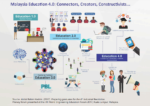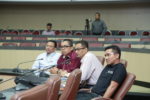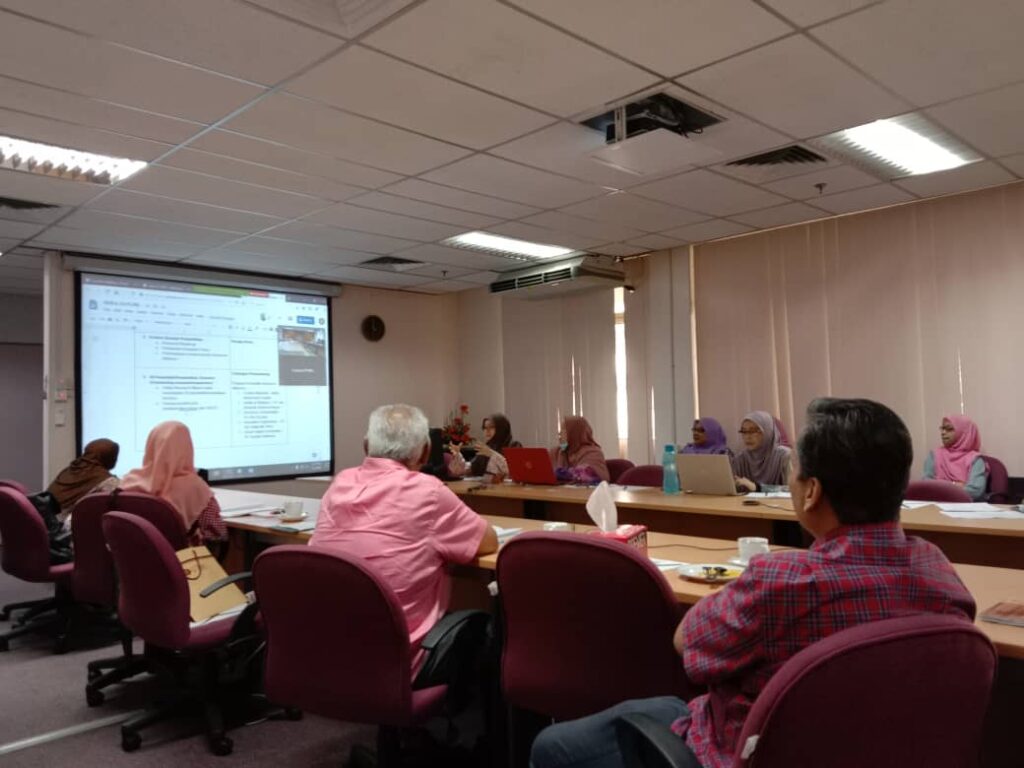Mohd Fuad Mohamed Yusof
mfuad@utm.my.
Abstrak
Scholarly article writing is vital for knowledge dissemination but often poses challenges for authors. This article explores key principles such as clarity and authenticity (Harlow, 1962), structural guidelines (O’rahilly, 1988), mentorship (Fikra & Darmalaksana, 2021), online learning (Maryati & Sari, 2021), and comprehensive preparation (Arumugam et al., 2022). These approaches enhance academic writing quality by integrating purposeful and effective strategies, transforming it from a daunting task into a structured and impactful process.
Introduction
Writing scholarly articles has long been a cornerstone of knowledge dissemination, especially in academia. Despite its importance, many struggle with producing work that is both enlightening and impactful. Various experts over the years have provided insights into what constitutes effective article writing, offering principles, guidelines, and strategies to help writers present their work in a manner that is not only knowledgeable but also engaging. This article delves into some of these expert insights and discusses how adhering to certain principles and models can make the process more structured and successful.
-
Principles in Article Writing: Beyond Erudition Without Substance
Harlow (1962) provides a critical perspective, cautioning against writing practices that appear insightful yet lack genuine knowledge or discovery. According to Harlow, it’s possible to craft articles that seem intellectually robust but ultimately leave the reader without meaningful information or results. This is a reminder for authors that writing should be an exercise in clarity and authenticity. Articles must serve as vessels for real discoveries or discussions and should avoid the temptation of merely creating an illusion of depth. The essence of Harlow’s principle is to stay true to the core purpose of scholarly writing: imparting knowledge, fostering understanding, and offering conclusions supported by evidence.
This principle is relevant not only for experienced researchers but also for novice writers. With the growing accessibility of publishing platforms, the pressure to appear insightful can lead to articles that prioritize complexity over clarity. Thus, writers are encouraged to prioritize genuine insight over superficial erudition, focusing on communicating their findings clearly and directly.
-
Guidelines to Aid Structure and Clarity in Writing
O’rahilly (1988) emphasizes that while guidelines alone cannot guarantee the quality of an article, they play an instrumental role in enhancing clarity and coherence. By following established guidelines, writers can streamline the flow of their ideas, making the article easier to understand for both reviewers and readers. These guidelines also serve as invaluable tools for editors and publishers who strive to maintain quality and consistency across publications.
Guidelines for article structure often include formatting standards, referencing styles, and language considerations, which are essential for readability. Furthermore, such guidelines can support the writer in organizing their thoughts systematically, helping them create a logical sequence that guides the reader from one point to the next. This organization is crucial in academic writing, where ideas must be developed progressively to facilitate understanding.
-
Effective Mentorship in Article Writing
Fikra and Darmalaksana (2021) found that mentoring students, particularly in religious studies, is highly effective in improving their article-writing skills. Mentorship provides students with direct guidance from experienced writers or educators, allowing them to receive feedback, refine their ideas, and build confidence in their writing abilities. This approach is particularly useful in fields where the writing style and structure may differ from conventional academic disciplines, as mentors can tailor their feedback to meet the unique needs of the field.
Mentorship programs foster a collaborative environment where students can learn not only the technical aspects of writing but also the nuances of scholarly expression and critical thinking. Through mentorship, students gain insights into the expectations of academic writing, including the importance of coherence, evidence-based argumentation, and ethical considerations in their work. This model highlights the value of personalized guidance and the positive impact it has on aspiring writers.
-
Online Learning as a Strategy for Accessible Article Writing
Maryati and Sari (2021) explored strategies to simplify article-writing instruction for readers and found that online learning platforms are effective in providing accessible guidance. Online courses, tutorials, and webinars offer flexible resources that help learners understand the intricacies of article writing at their own pace. This approach makes academic writing more accessible to a broader audience, especially those who may lack access to traditional classroom settings or mentorship opportunities.
Through online learning, writers can engage with multimedia resources such as video lectures, interactive exercises, and peer review forums, all of which contribute to a richer understanding of writing strategies. This method not only provides structural guidance but also encourages writers to adopt a learner-cantered approach, empowering them to improve their skills and develop their voice in academic writing. Maryati and Sari’s findings demonstrate the transformative potential of digital resources in democratizing access to academic writing skills.
-
Knowledge, Preparation, and Proper Referencing as Keys to Success
Arumugam et al. (2022) highlight that writing a thesis or article need not be an overwhelming task if the writer is well-prepared and informed. They suggest that knowing what to write, how to structure the content, and maintaining thorough referencing practices are foundational to creating quality work. Proper preparation includes understanding the topic deeply, outlining the structure, and being clear about the goals of the article. Furthermore, correct referencing is essential in academic writing as it acknowledges the work of other researchers and lends credibility to the article.
Arumugam and colleagues also stress the importance of including all annexures and supplementary materials, which serve to support the research findings and offer additional context. By following these practices, writers can produce well-rounded articles that meet academic standards and offer valuable contributions to their field. This approach to writing underscores the importance of preparation, organization, and thoroughness, key elements that reduce the challenges often associated with academic writing.
Conclusion
In conclusion, effective article writing is a multifaceted skill that combines adherence to guiding principles, structured mentorship, accessible resources, and diligent preparation. The insights from Harlow, O’rahilly, Fikra and Darmalaksana, Maryati and Sari, and Arumugam et al. collectively highlight the importance of clarity, mentorship, accessibility, and thoroughness. By embracing these elements, writers can transform their academic writing from a daunting task to a rewarding endeavour, contributing meaningful knowledge to their field while engaging and informing their audience.
Reference
- Arumugam, S. V., Kasaragod, S. K., & Paramasivan, V. K. (2022). Art of Writing Articles and Thesis. Annals of Indian Academy of Otorhinolaryngology Head and Neck Surgery, 6(2). https://doi.org/10.4103/aiao.aiao_6_23
- Fikra, H., & Darmalaksana, W. (2021). MODEL PENDAMPINGAN MAHASISWA BIDANG KEAGAMAAN DALAM KEPENULISAN ARTIKEL ILMIAH. Jurnal Perspektif, 5(2). https://doi.org/10.15575/jp.v5i2.137
- Harlow, H. F. (1962). Fundamental principles for preparing psychology journal articles. Journal of Comparative and Physiological Psychology, 55(6). https://doi.org/10.1037/h0043204
- Maryati, E., & Sari, R. K. (2021). ARTICLE WRITING STRATEGIES THROUGH ONLINE LEARNING ON EDUCATIONAL RESEARCH. Teaching English and Language Learning English Journal (TELLE), 1(2). https://doi.org/10.36085/telle.v1i2.1895
- O’rahilly, R. (1988). Guide to writing articles in english. In Cells Tissues Organs (Vol. 131, Issue 1). https://doi.org/10.1159/000146476


















